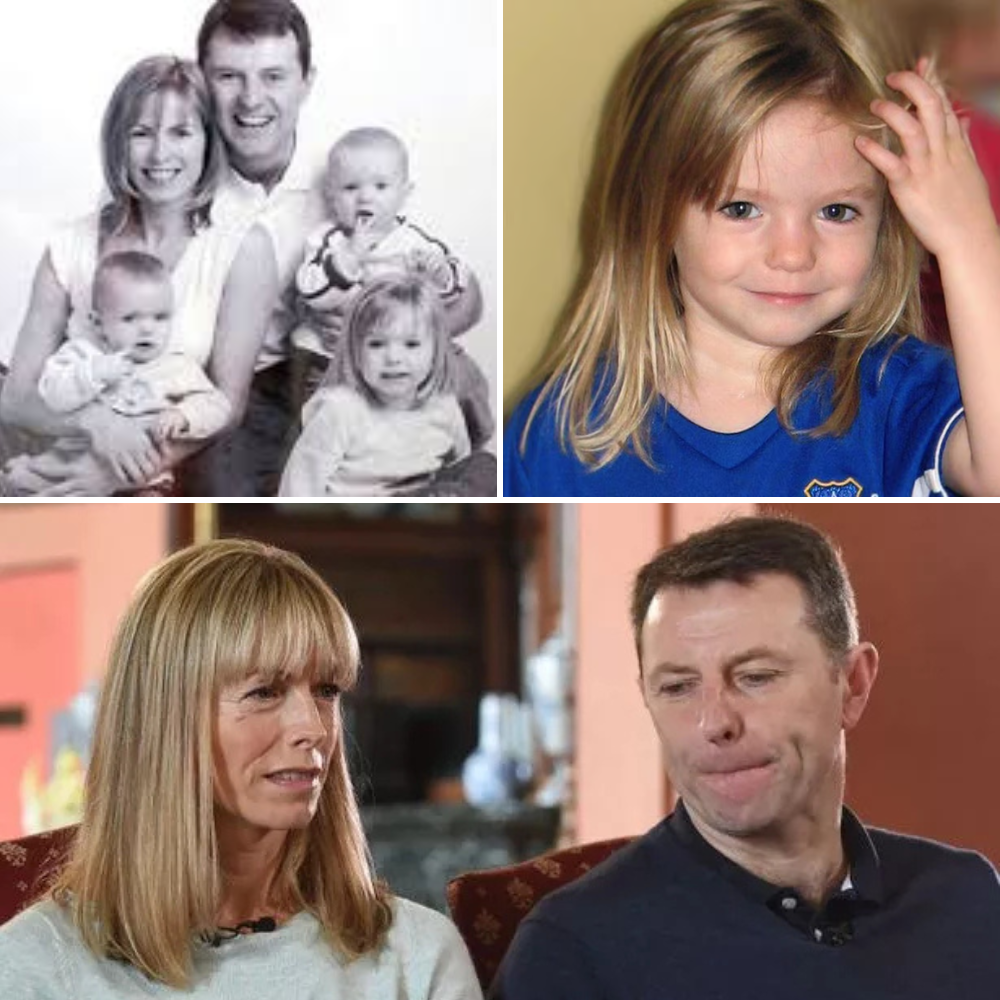
The Algarve coast of Portugal, with its golden beaches and sun-drenched resorts, was supposed to be a haven for the McCann family in May 2007. Kate and Gerry McCann, both doctors from Leicestershire, England, had brought their three children—three-year-old Madeleine and her two-year-old twin siblings, Sean and Amelie—for a week-long holiday at the Ocean Club resort in Praia da Luz. The trip was meant to be a joyful escape, a chance to unwind with friends and bask in the carefree rhythm of a family vacation. But on the evening of May 3, 2007, their world would collapse in a way that would haunt them for decades.
The McCanns, along with seven friends and their children, had settled into a comfortable routine at the resort. The days were filled with laughter, swimming in the pool, and activities at the Kids Club, where Madeleine and her siblings played under the watchful eyes of staff. The adults cherished the evenings, gathering at the resort’s tapas restaurant, a mere 100 yards from their ground-floor apartments. The proximity felt safe, almost like an extension of their own backyard. The group devised a system to check on their sleeping children every half-hour, a practice they believed ensured their safety while allowing a rare moment of adult companionship.
On that fateful evening, Kate and Gerry tucked Madeleine and the twins into bed in apartment 5A. The children were exhausted from a day of play, their small bodies nestled under blankets, Madeleine clutching her favorite cuddly toy, Cuddle Cat. The shutters were down, the window closed, and the patio door left slightly ajar for easy access during checks. At around 8:30 p.m., the parents joined their friends at the restaurant, their hearts light with the comfort of routine. They were not reckless; they were parents who trusted the serene environment of a family-friendly resort, a place marketed as a sanctuary for relaxation.
The checks began as planned. Gerry returned to the apartment around 9:05 p.m., peering into the bedroom where Madeleine and the twins slept soundly. Everything was as it should be. The night carried on, the group’s laughter mingling with the warm breeze. Friends took turns checking on the children, each report confirming that all was well. But at 10:00 p.m., when Kate took her turn, the world stopped. She entered the apartment, her eyes scanning the room. Madeleine’s bed was empty. The blanket was there, Cuddle Cat abandoned, but her daughter was gone. Panic surged through her. She checked the twins, still asleep in their cots, untouched. The window was now open, the shutters raised. Kate’s scream shattered the night: “Madeleine’s gone! Someone’s taken her!”
The next moments were a blur of desperation. Kate raced back to the restaurant, her cries alerting the group. The resort staff and guests sprang into action, searching the complex, calling Madeleine’s name into the darkness. Gerry, his face etched with terror, scoured the grounds, his mind racing with possibilities. The police were called, but the response felt agonizingly slow. Border patrols and airport staff were alerted, and by dawn, hundreds of volunteers had joined the search. The McCanns clung to each other, their hearts splintering with every passing minute. How could this happen? They had checked on their children, they had trusted the safety of the resort, they had done what countless other parents might have done.
As the days turned into weeks, the McCanns’ grief became a public spectacle. The media descended on Praia da Luz, turning their private agony into a global story. Madeleine’s face—her blonde hair, hazel eyes, and distinctive smudge in her right iris—appeared on posters, lamp posts, and television screens worldwide. Kate and Gerry, fueled by a desperate hope, made impassioned pleas for their daughter’s return. They traveled across Europe, meeting with officials, attending vigils, and setting up a fund to sustain the search. Every lead, no matter how faint, was a lifeline. They refused to believe Madeleine was gone forever.
But the scrutiny was relentless. The Portuguese police, under pressure to solve the case, turned their focus on the McCanns. Misinterpretations of DNA evidence from a rental car they used weeks after the disappearance fueled suspicions. Theories emerged that Madeleine had died accidentally in the apartment, perhaps sedated to sleep, and that her parents had concealed her body. In September 2007, Kate and Gerry were named “arguidos,” or official suspects, a designation that crushed their spirits. Kate, already tormented by guilt for leaving the children, faced 11 hours of interrogation, refusing to answer questions as her world crumbled. The accusations were baseless, rooted in flawed assumptions and a lack of concrete evidence, but they clung to the family like a shadow.
The McCanns’ pain was compounded by public judgment. Some criticized their decision to leave the children alone, ignoring the context of a resort that felt like a secure community. Kate, a devout Catholic, grappled with her faith, questioning why this nightmare had befallen them. Gerry, stoic yet broken, channeled his energy into advocacy, determined to keep Madeleine’s case alive. They raised their twins, Sean and Amelie, in a home forever marked by absence, buying birthday gifts for Madeleine each year, as if she might one day return to claim them.
In July 2008, the Portuguese police shelved the case, lifting the McCanns’ suspect status but offering no answers. The couple hired private investigators, refusing to let hope die. In 2011, the Metropolitan Police launched Operation Grange, treating the case as a stranger abduction. A breakthrough came in 2020 when German authorities named Christian Brückner, a convicted pedophile with a history of crimes in the Algarve, as the prime suspect. Evidence placed him in Praia da Luz at the time of the disappearance, but charges remain elusive. The McCanns welcomed the development, though it brought little closure.
Eighteen years later, the McCanns live in Rothley, Leicestershire, their lives a delicate balance of resilience and sorrow. Kate still visits Praia da Luz, walking the streets where she last saw her daughter, searching for answers. The twins, now young adults, carry the weight of their sister’s absence, lighting candles at vigils but shying away from the spotlight. The family marks Madeleine’s birthday and the anniversary of her disappearance with quiet resolve, their statement unwavering: “We will leave no stone unturned.”
The tragedy of Madeleine McCann is not a tale of negligence but of a cruel twist of fate. Kate and Gerry were not perfect, but they were loving parents who made a choice rooted in trust—a trust that was shattered by an act of malevolence. Their story is one of enduring love, of a mother and father who have faced unimaginable loss yet continue to fight for their daughter. They live in limbo, their hearts tethered to a little girl who would now be in her early twenties, forever hoping that one day, they might bring her home.
